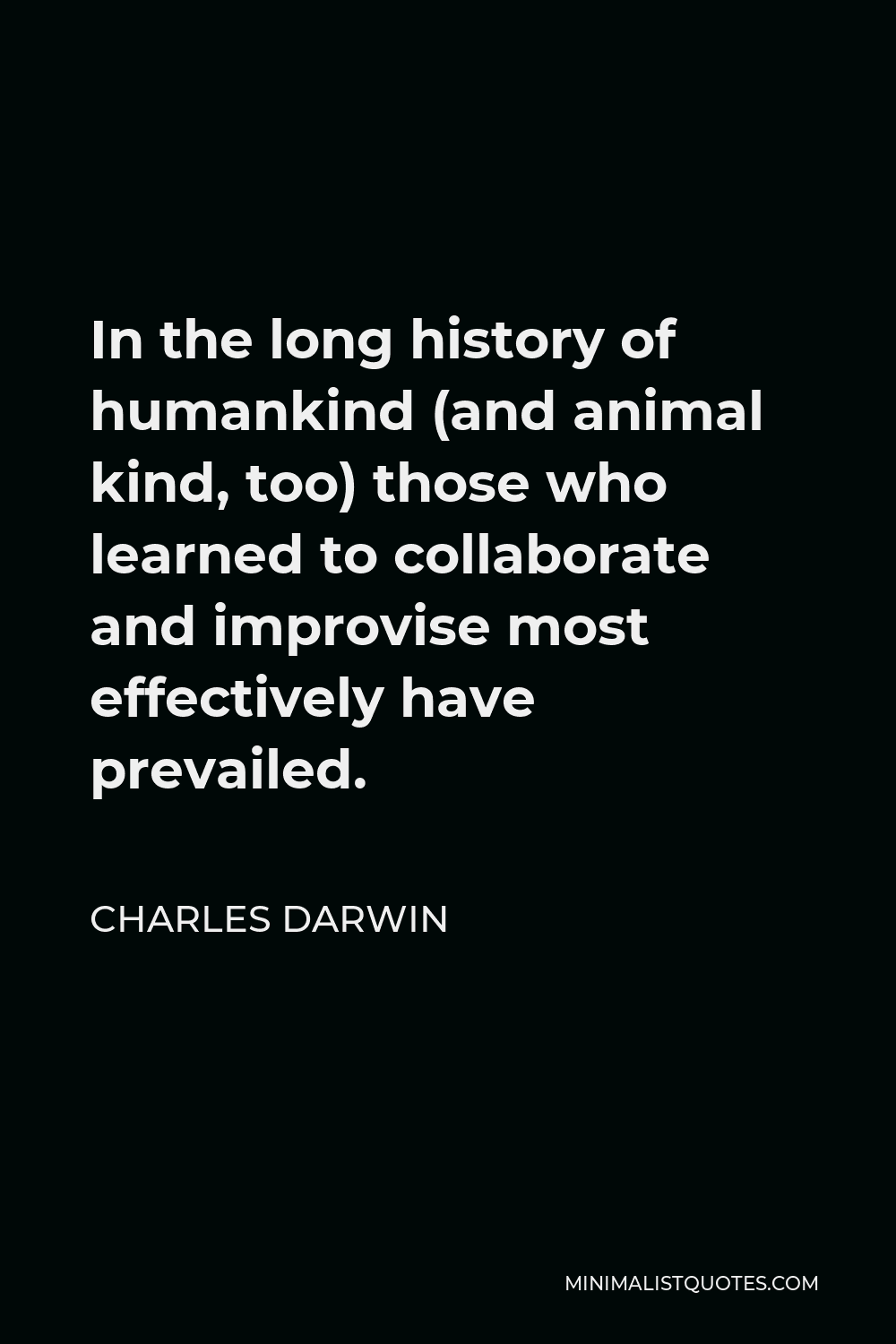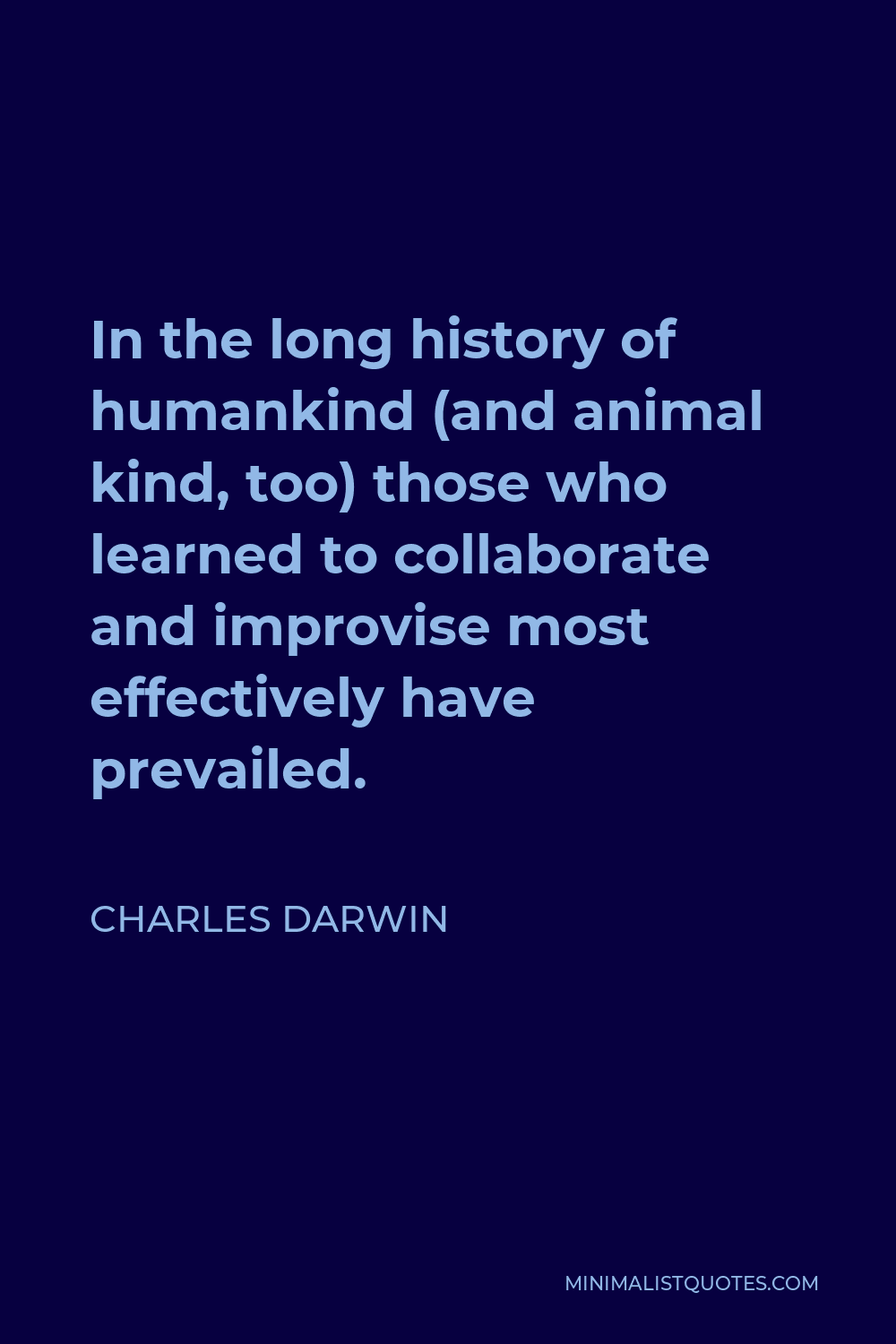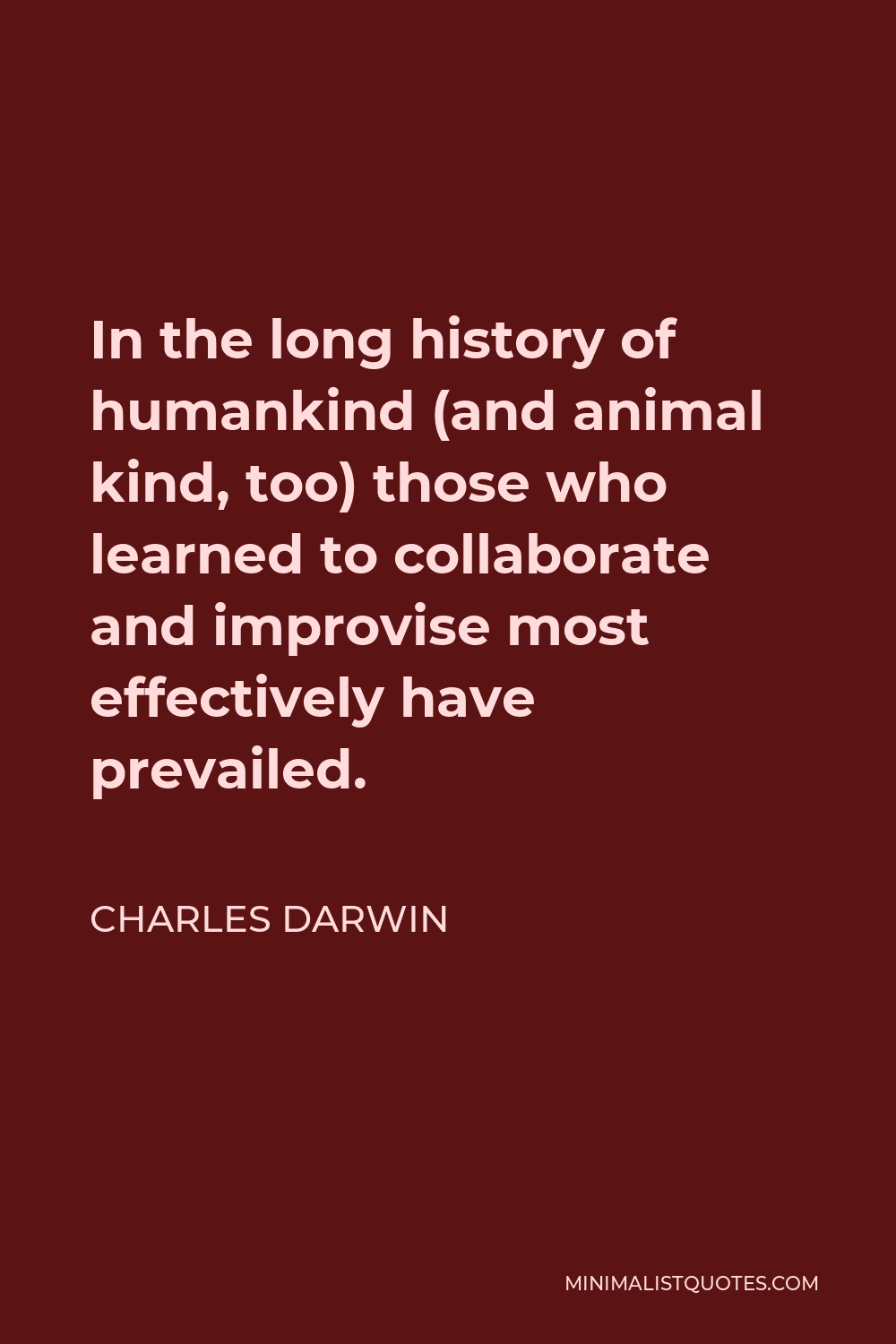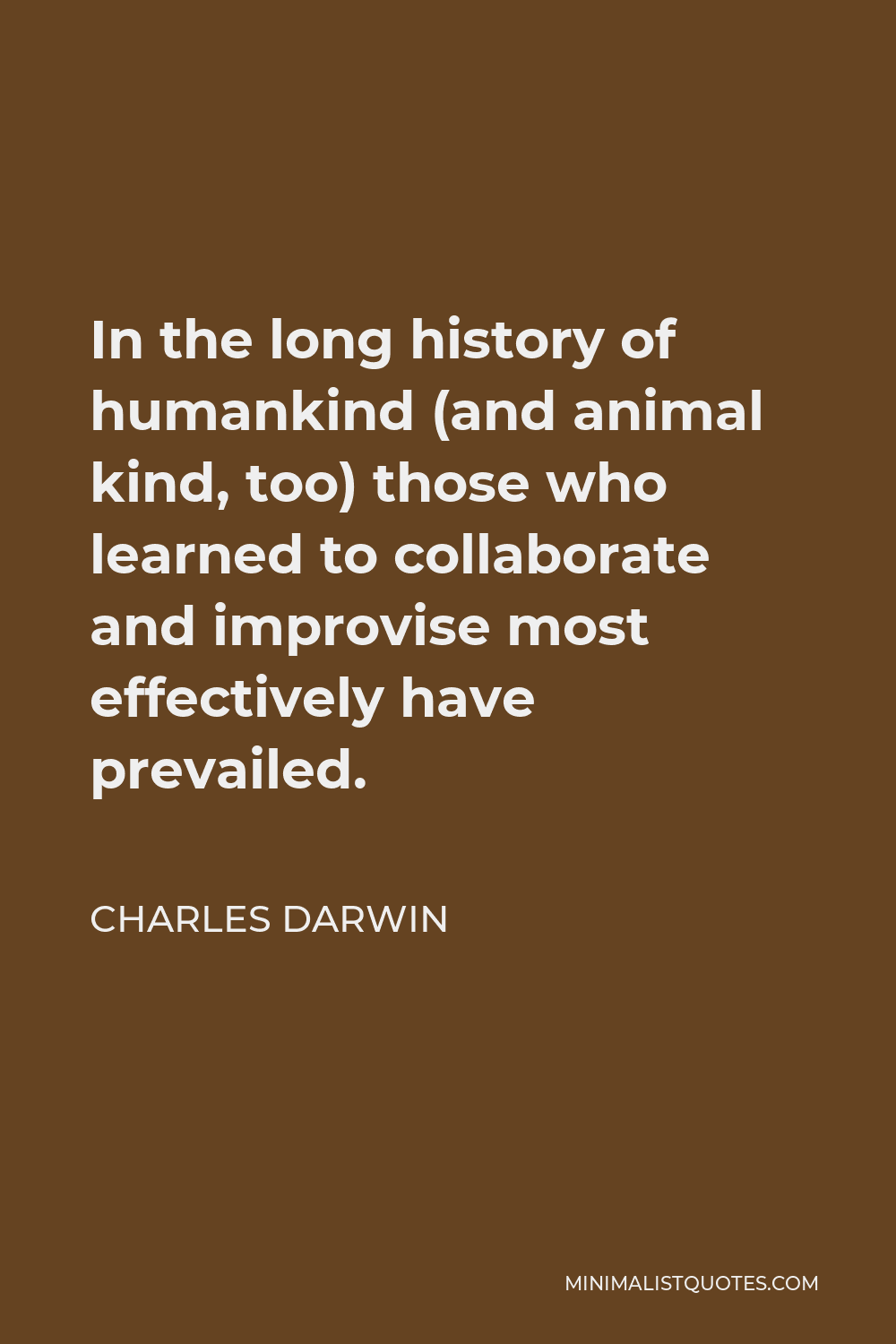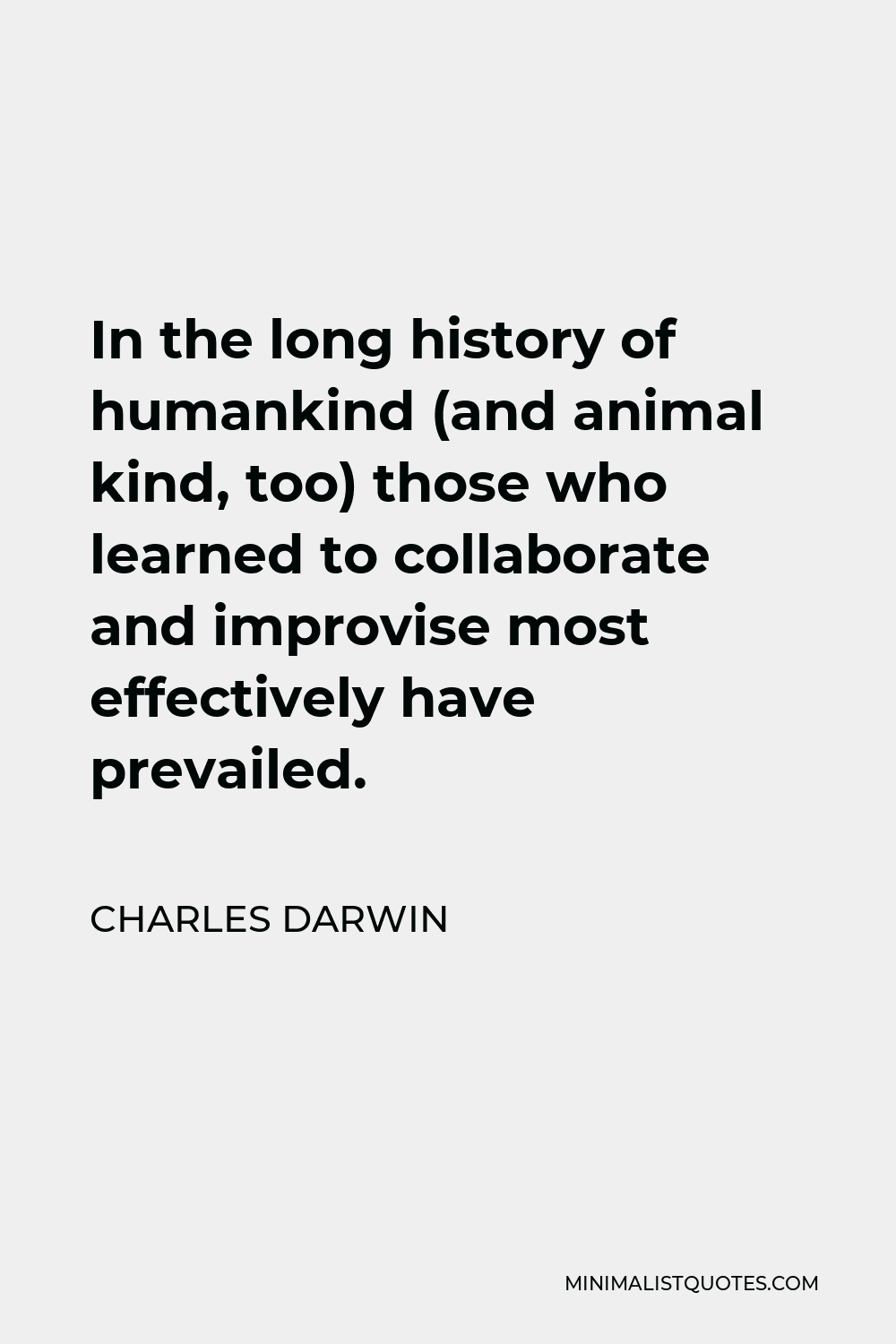We can allow satellites, planets, suns, universe, nay whole systems of universe, to be governed by laws, but the smallest insect, we wish to be created at once by special act.
CHARLES DARWINIn the long history of humankind (and animal kind, too) those who learned to collaborate and improvise most effectively have prevailed.
More Charles Darwin Quotes
-





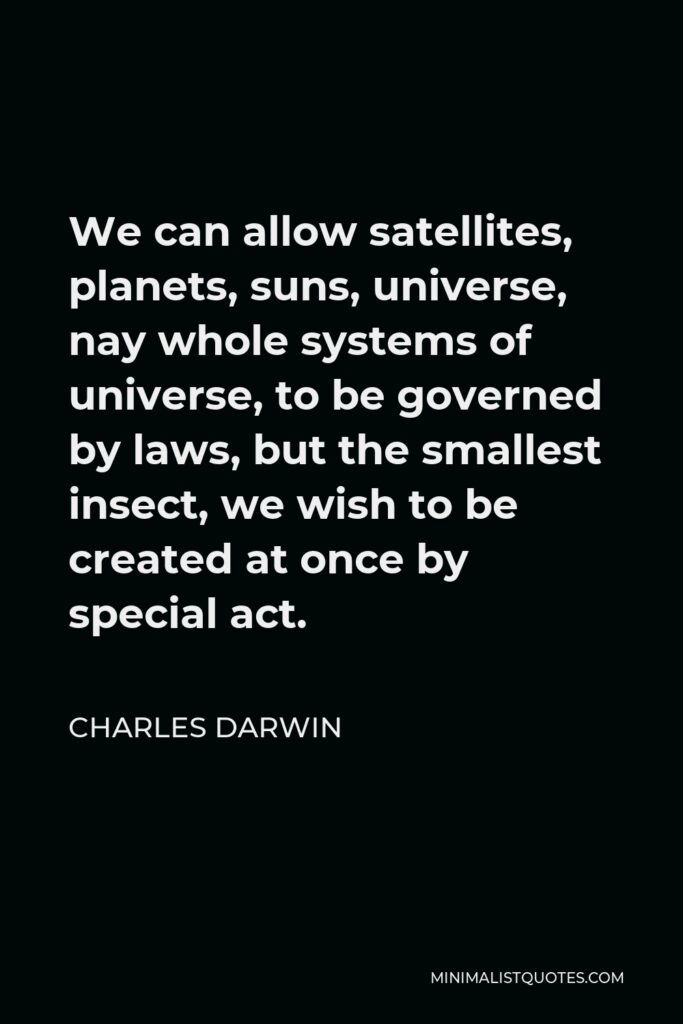

-





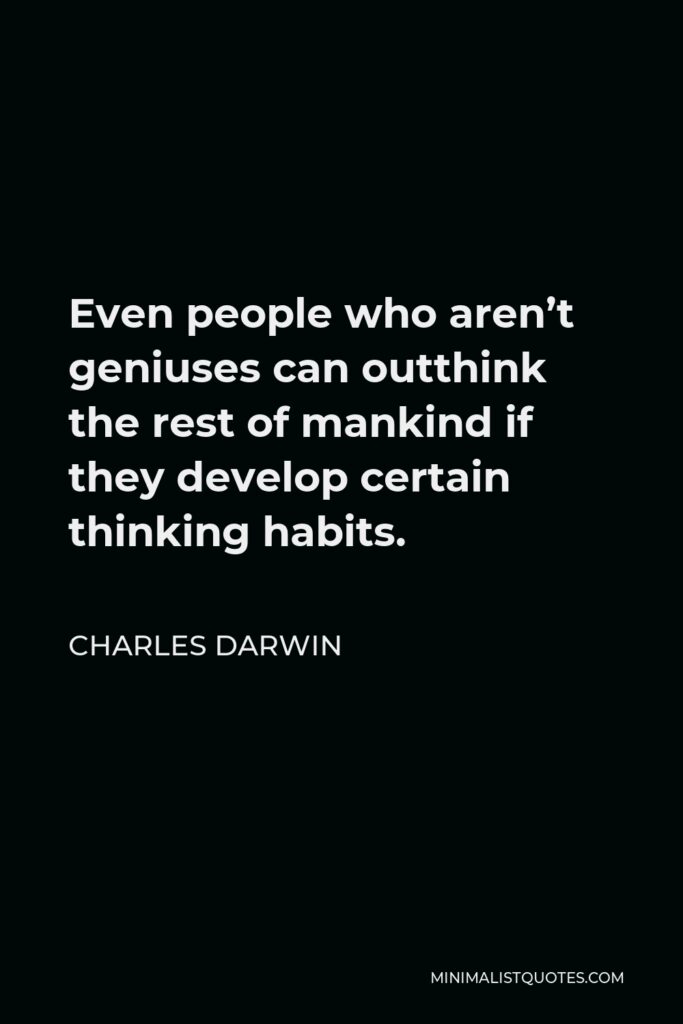

Even people who aren’t geniuses can outthink the rest of mankind if they develop certain thinking habits.
CHARLES DARWIN -





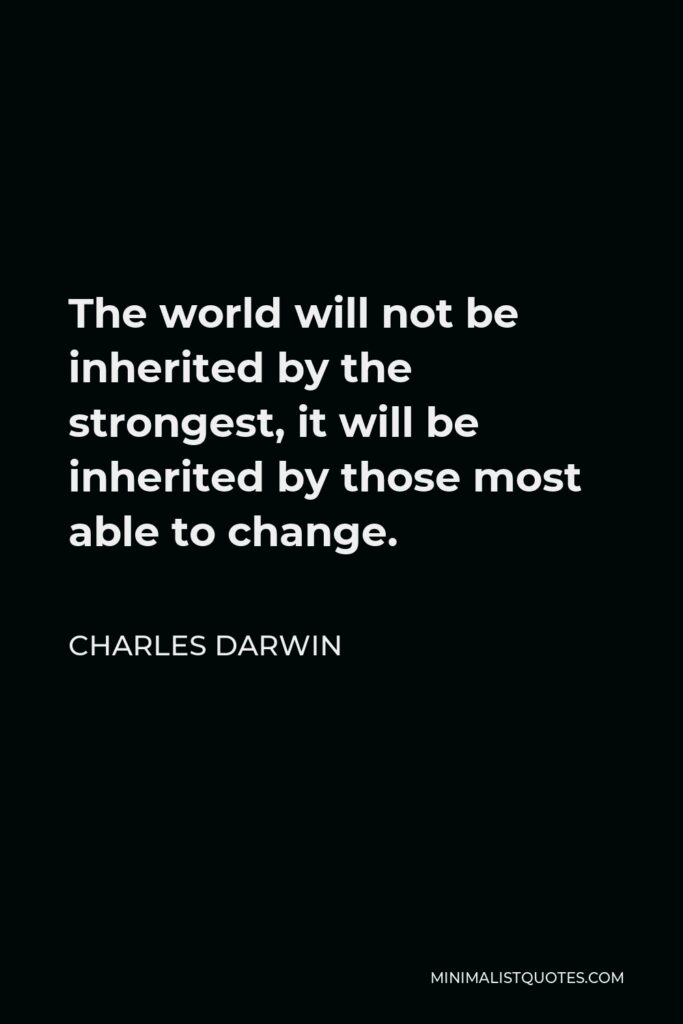

The world will not be inherited by the strongest, it will be inherited by those most able to change.
CHARLES DARWIN -





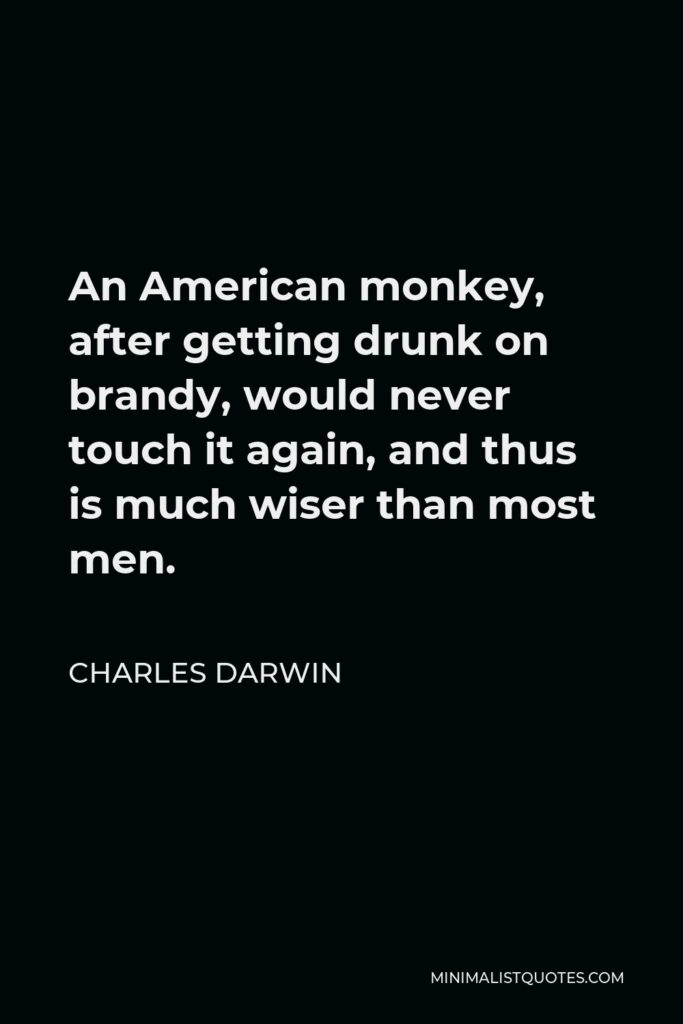

An American monkey, after getting drunk on brandy, would never touch it again, and thus is much wiser than most men.
CHARLES DARWIN -





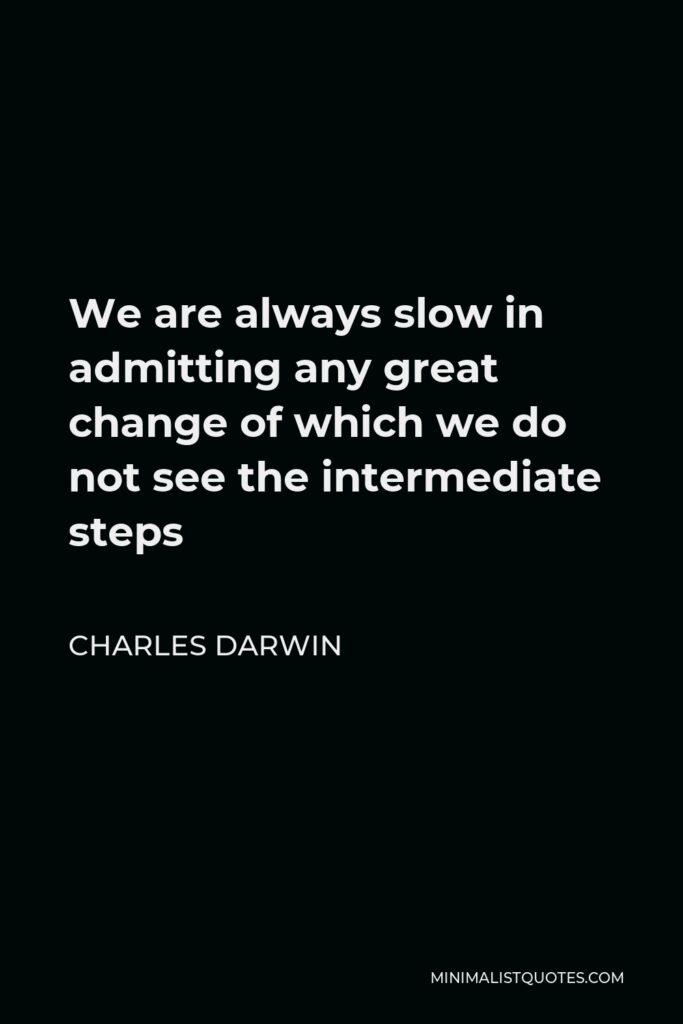

We are always slow in admitting any great change of which we do not see the intermediate steps
CHARLES DARWIN -





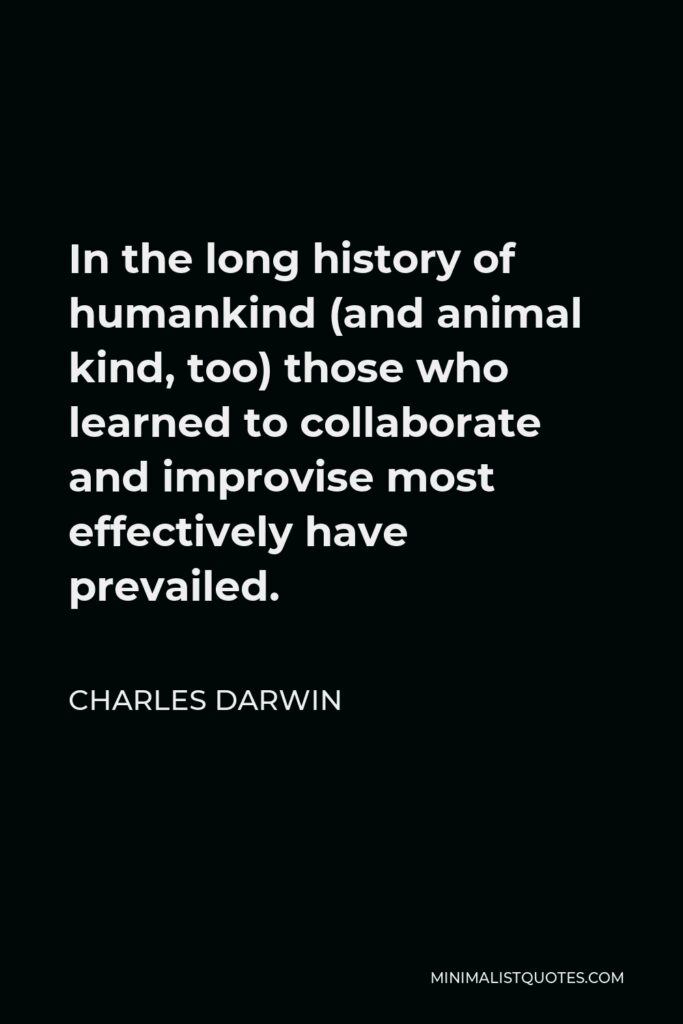

In the long history of humankind (and animal kind, too) those who learned to collaborate and improvise most effectively have prevailed.
CHARLES DARWIN -







Building a better mousetrap merely results in smarter mice.
CHARLES DARWIN -





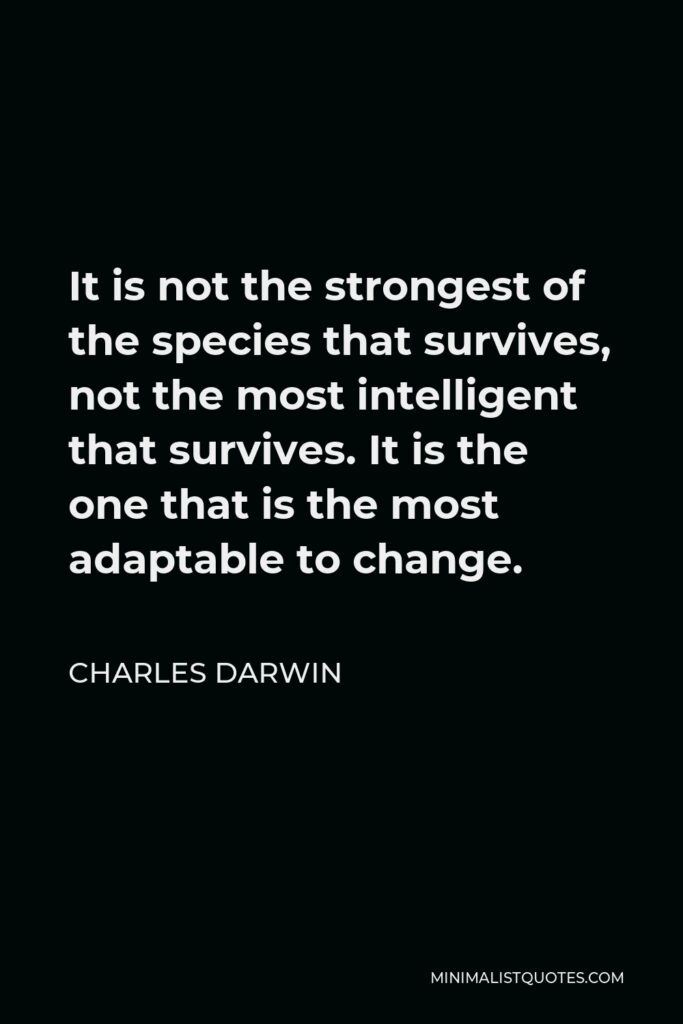

It is not the strongest of the species that survives, not the most intelligent that survives. It is the one that is the most adaptable to change.
CHARLES DARWIN -





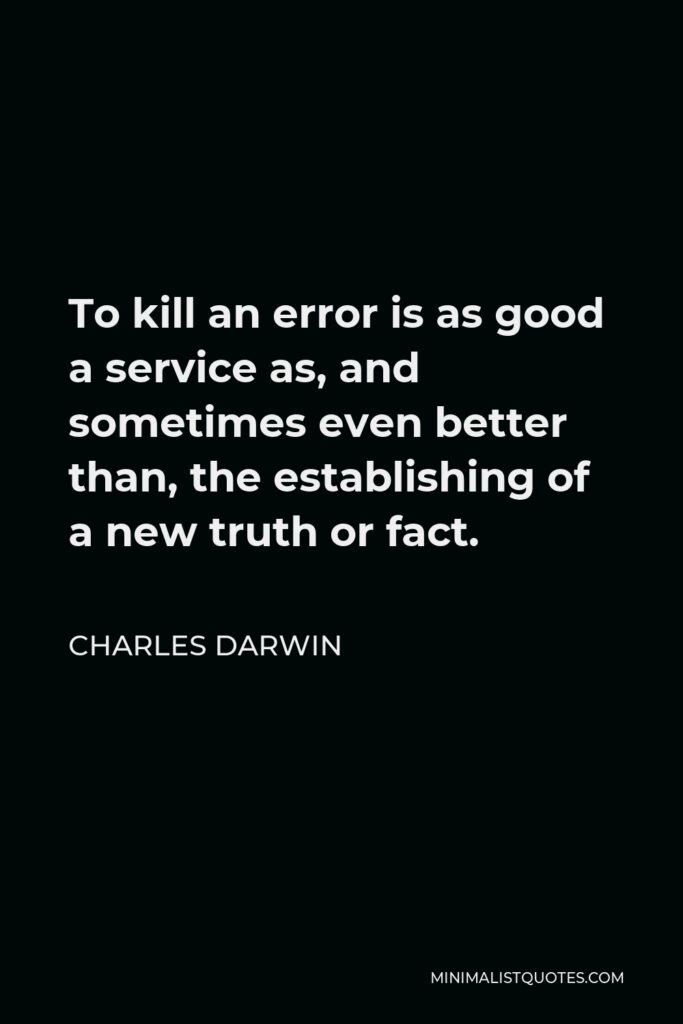

To kill an error is as good a service as, and sometimes even better than, the establishing of a new truth or fact.
CHARLES DARWIN -





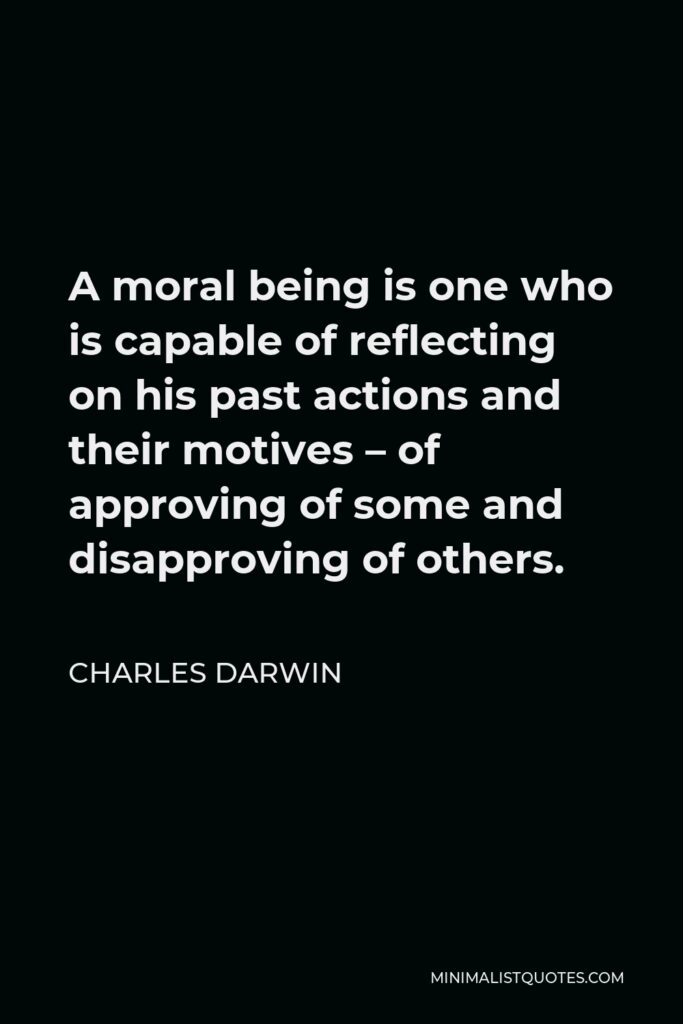

A moral being is one who is capable of reflecting on his past actions and their motives – of approving of some and disapproving of others.
CHARLES DARWIN -





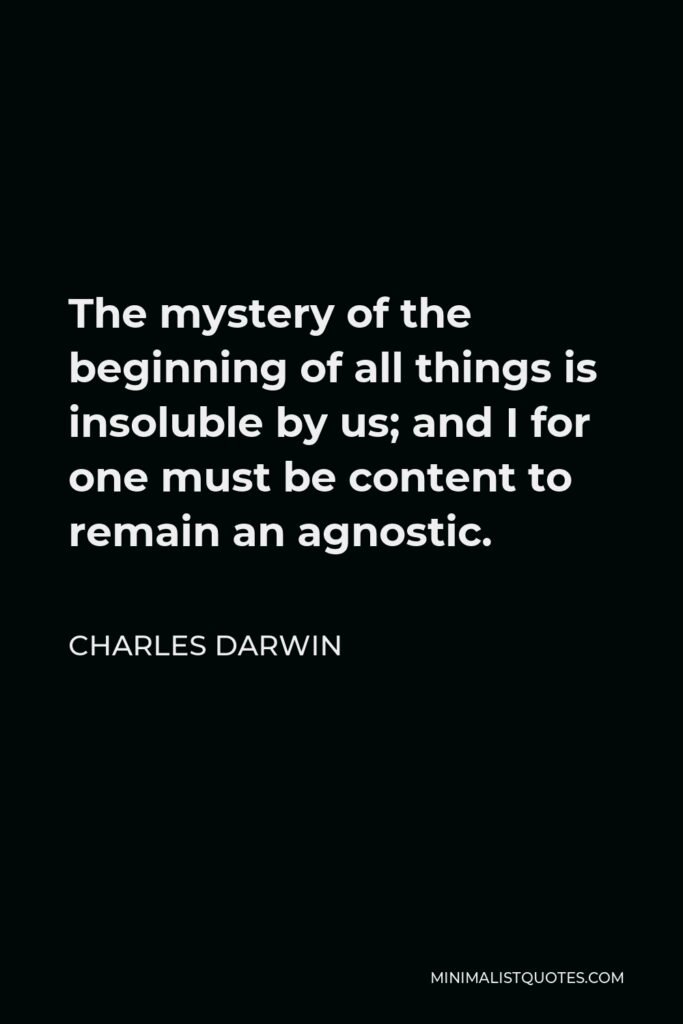

The mystery of the beginning of all things is insoluble by us; and I for one must be content to remain an agnostic.
CHARLES DARWIN -







If the misery of the poor be caused not by the laws of nature, but by our institutions, great is our sin.
CHARLES DARWIN -





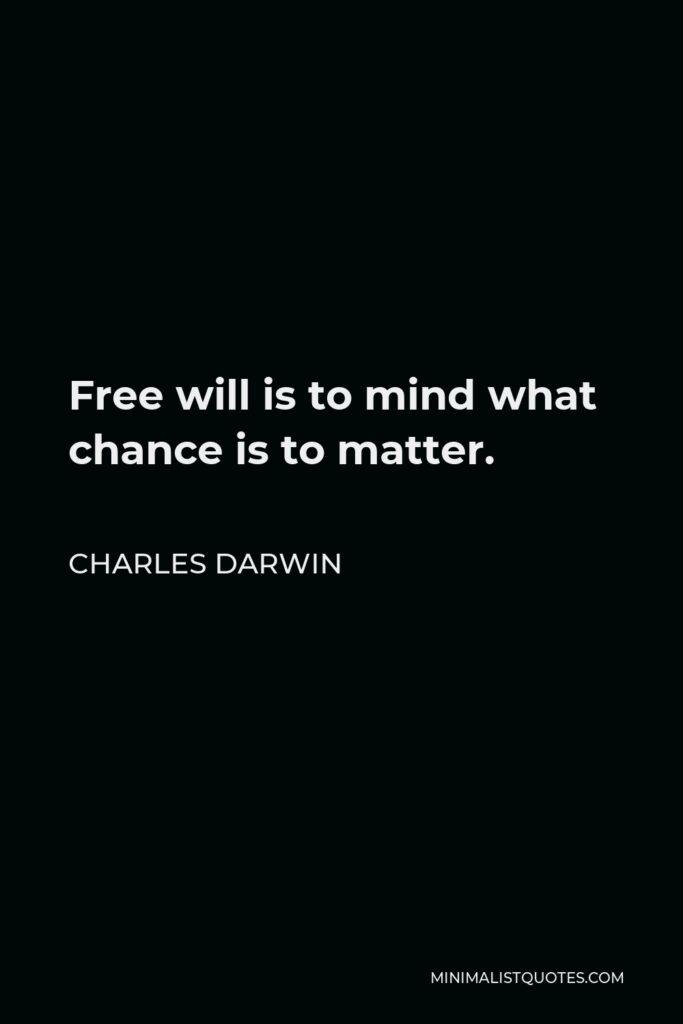

Free will is to mind what chance is to matter.
CHARLES DARWIN -





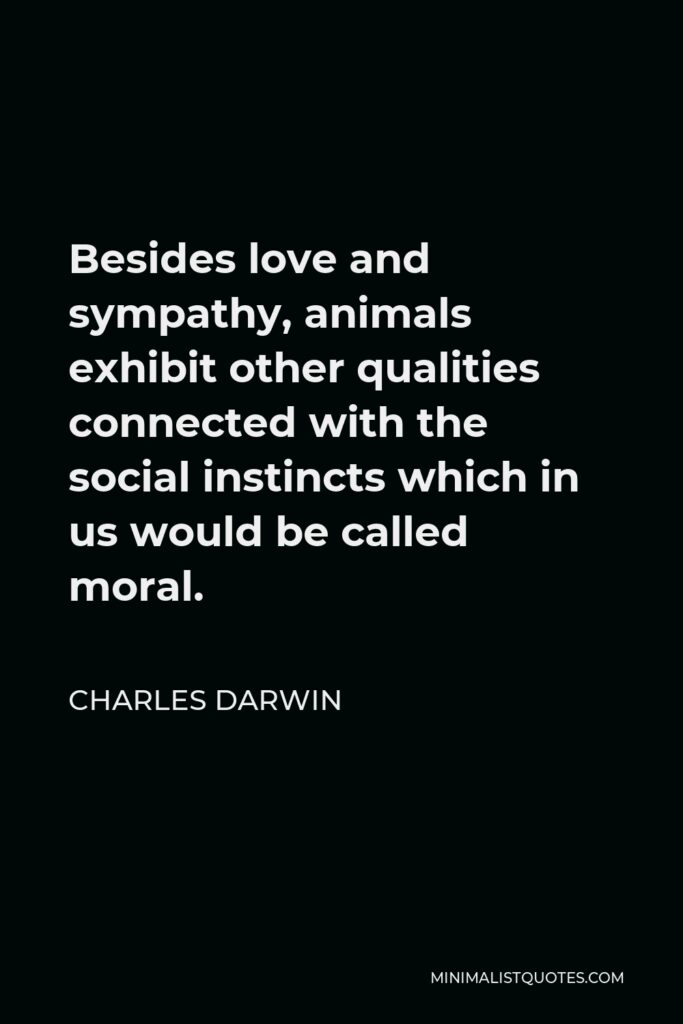

Besides love and sympathy, animals exhibit other qualities connected with the social instincts which in us would be called moral.
CHARLES DARWIN -





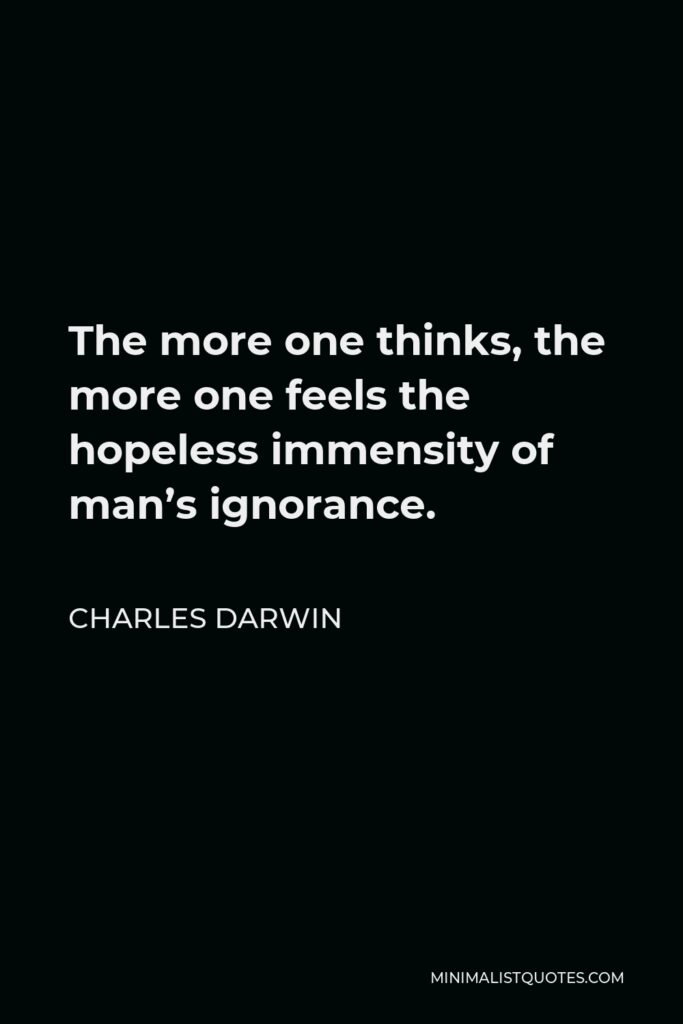

The more one thinks, the more one feels the hopeless immensity of man’s ignorance.
CHARLES DARWIN -





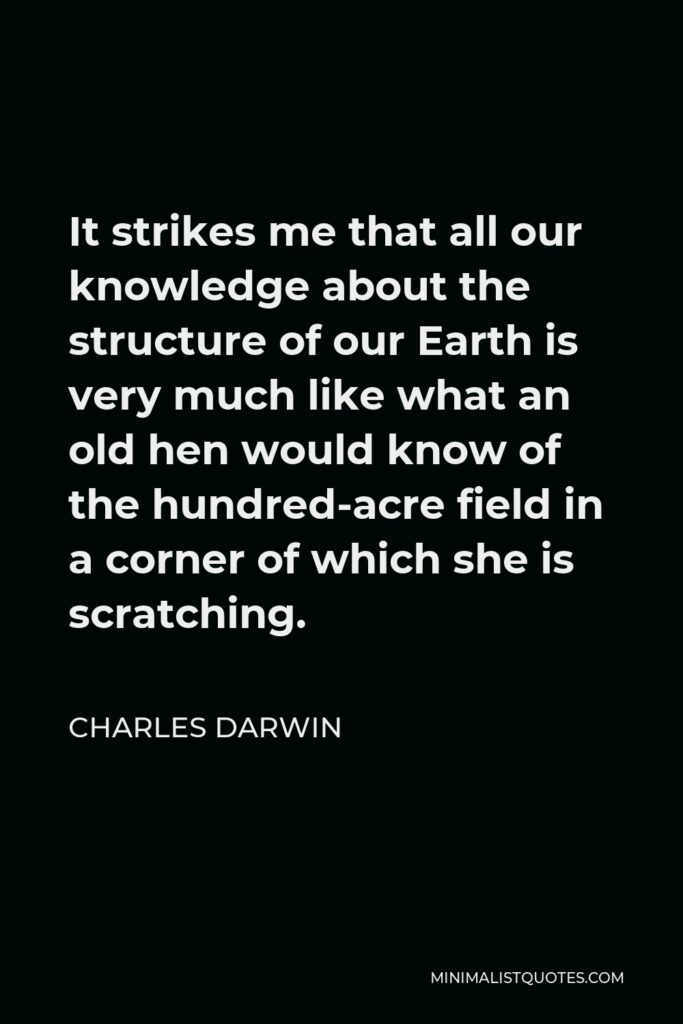

It strikes me that all our knowledge about the structure of our Earth is very much like what an old hen would know of the hundred-acre field in a corner of which she is scratching.
CHARLES DARWIN
